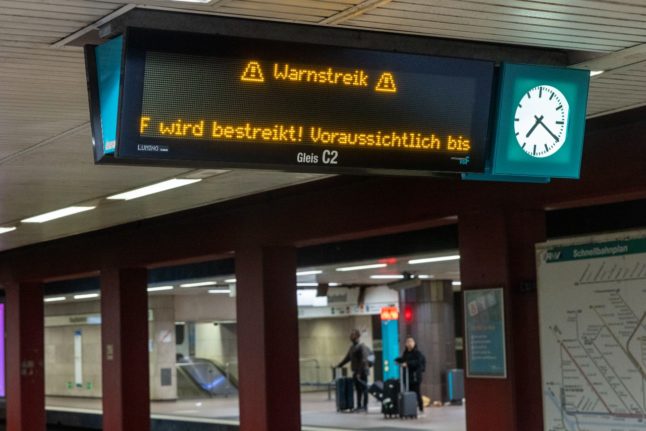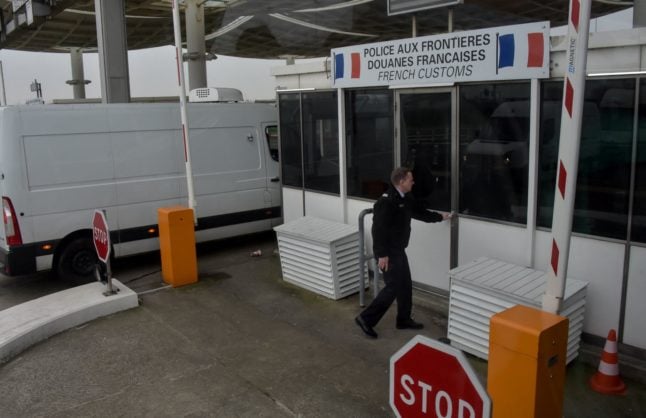With a national Deutsche Bahn strike affecting rail services around the country and Lufthansa staff walking off the job this week, it’s set to be a tough couple of days for commuters and holidaymakers alike.
For residents of the central state of Hesse, the situation is about to get even tougher, with a three-day strike on local public transport running from Wednesday March 13th to the end of the night shift on Saturday morning (March 16th).
The warning strike was called by services union Verdi as part of an ongoing battle over pay and conditions for local transport workers.
In Frankfurt, local operator VGF announced that no U-Bahn trains or trams would be running for the duration of the strikes, but buses within the city and serving the surrounding regions are expected to run on schedule.
According to Verdi, other major cities in Hesse will also be hit by the strike.
In addition to Frankfurt, Wiesbaden, Kassel and parts of Gießen will all be affected.
In Wiesbaden and Gießen, distruption is expected on local bus services, while the action in Kassel will affect both buses and trams.
READ ALSO: Germany braces for new week of strikes in rail and air travel
‘Inadequate offer’
The latest round of industrial action is the second this month to affect U-Bahns and trams in the Hessian capital.
The previous transport strike in the city ran for two days from March 1st to March 3rd.
Though the municipal transport operators have presented Verdi with a new offer in their current dispute, the union quickly rejected the proposals, saying they lacked “important key points” and were “inadequate in terms of (inflation) relief and pay groups”.
Alongside better pay to compensate for inflation, the union is demanding a 35-hour week for workers.
This is also a demand of the GDL train drivers’ union, which is engaged in a months-long struggle with German rail operator Deutsche Bahn over pay and working hours.
The latest GDL strike kicked off on Tuesday at 2am and is set to run until Wednesday at 2am, causing major disruption on long-distance, regional and S-Bahn rail services.
READ ALSO: How likely are strikes in Germany over Easter weekend?
Meanwhile, ground staff at Lufthansa will go on strike on both Tuesday and Wednesday in an ongoing battle for higher wages.
The strike will affect Germany’s two busiest airports – Frankfurt and Munich – and will cause as many as 1,000 flight cancellations over the two days.



 Please whitelist us to continue reading.
Please whitelist us to continue reading.
Include the dates would be helpful. Is it Wednesday March 13 or Wednesday March 20? Or is this an old story.